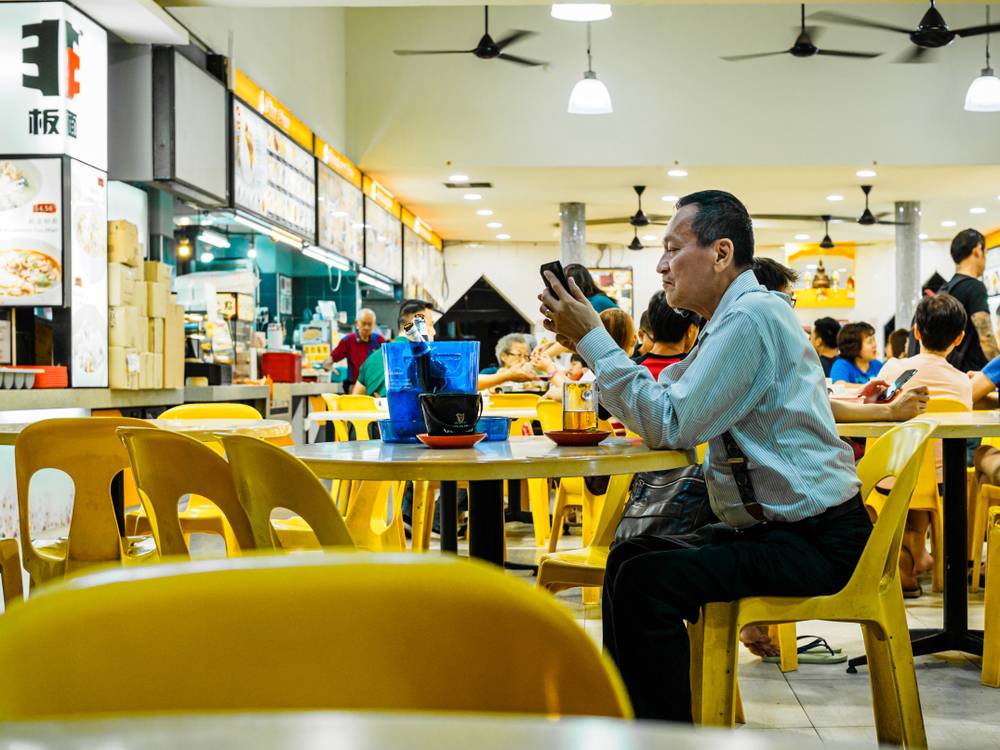Technology has undeniably transformed the way we entertain ourselves and connect with others. Yet, paradoxically, technology’s growing influence is contributing to a pervasive sense of loneliness and isolation worldwide.
For many, the constant presence of screens and devices has replaced genuine human connection, leading to a greater sense of loneliness and isolation. A worrying effect of loneliness is how it can influence our mental wellness, as well as our physical health, having been linked to the development of a variety of illnesses like cardiovascular diseases and metabolic disorders.
With loneliness being on the rise globally, and being markedly felt in countries like the Philippines and Singapore, understanding the multiple reasons behind it is crucial in helping to alleviate this phenomenon.
The Digital Divide: Technology & Loneliness
Remote Work & Reduction of In-person Interactions
The rise of remote work and online activities in the post-COVID-19 era has reduced opportunities for in-person socialisation, further exacerbating sentiments of loneliness. Loneliness among remote employees has grown so pervasive that public health experts have labeled it an epidemic.
While there is a gradual shift for return-to-office hybrid work arrangements, there are still a lot of people fully remote and impacted by isolation.
The Fleeting Nature of Online Relationships

In the digital age, messaging apps and virtual communities have enabled humans to connect to each other to a degree never felt before. However, interactions performed through such mediums can be shallow and transient.
This is deeply felt by Mr Christopher Choy, who operates a licensed Singapore-based cat-breeding business on his own, as he shares his story with CNA.
The 39-year-old spends most of his days by himself because of his job, and rarely sees his friends due to their busy schedules. This has incited him to try forming friendships through the instant messaging platform Discord to fill the void.
However, he finds that “the nature of these relationships is very ephemeral”, as people tend to vanish after a while.
Mr Muhammad Arif Ong, a 27-year-old security guard who finds it difficult to meet with others due to his shift work, feels much the same way when it comes to connecting with people through online video games.
“The moment people get busy, they just stop playing. And when they stop playing, they don’t talk anymore and it’s just radio silence.” He laments.
The Psychological Influence of Social Media
Numerous studies have highlighted the negative effects social media use can have on our mental wellbeing. It compels people to make comparisons between their lives and what they see online, which can increase anxiety levels and lower self-esteem.
Social Media makes the loneliness worse
byu/hungryhippo1202 inlonely
In addition, people can find it hard to create meaningful interactions via social media, as most posts are carefully curated to be highlight reel of one’s life.
“These days, social media is just a platform for people to show off and feel good about themselves as they curate their content heavily to show only the positive parts of their lives,” said 30-year-old Isabel Han.
“In that sense, I feel more isolated because everyone is only thinking about themselves.”
Clinical Psychologist and Founder of ImPossible Psychological Services Haikal Jamil explains: “Online connections tend to focus on brief, surface-level exchanges such as likes, comments and short messages, rather than supportive conversations.”
This can cause people to feel dejection and alienation, as they find it hard to engage in sincere and empathetic discussions.
The Isolation of Binge-Watching
Binge-watching on video-streaming platforms like Netflix is a common pastime for many. It mayseem like harmless entertainment, but spending prolonged hours in front of a screen can deepen loneliness.
Binge watching as an escape
byu/Definitely_alva9 indepression
Moreover, using it to cope with loneliness is an unhealthy form of emotional regulation, which can intensify the problem and exacerbate social anxieties.
Additionally, the sedentary feature of binge-watching can lead to a lack of physical activity, resulting in a decline in your overall wellbeing.
Healthy Ways to Manage Loneliness
Since technology is here to stay, it is important to mitigate its isolating effects by cultivating meaningful, offline connections. There are activities to enjoy that can give you motivation and purpose, even if you don’t have the company of a friend or loved one.
- Pursue offline hobbies, and take up classes that will help you acquire new skills.
- Make exercise a habit, as it positively impacts both your physical condition and your mood.
- Consider signing up for local events or volunteer work as it will get you out of the house and connecting more with your community.
- Speaking with a healthcare professional can also set you up on ways to assuage loneliness that will be more personalised to individual circumstances.
As we navigate a digital-first world, you can learn to strike a balance between our digital engagement and how we exist in the real world. By acknowledging the potential pitfalls of excessive technology use, we can work towards investing more in ourselves and prioritise meaningful connections that nourish our emotional health.

